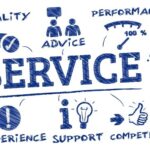The Power of Outreach Programs in Building Stronger Communities
Outreach programs play a vital role in empowering communities and creating positive change. These initiatives are designed to reach out to individuals and groups who may be marginalized, disadvantaged, or in need of support. By offering resources, services, and education, outreach programs aim to improve the well-being and quality of life for all members of society.
Benefits of Outreach Programs:
- Increased Access to Services: Outreach programs bring essential services directly to those who need them most, eliminating barriers such as transportation or financial constraints.
- Community Engagement: By engaging with community members on a personal level, outreach programs build trust and foster meaningful relationships that can lead to long-term positive outcomes.
- Educational Opportunities: Many outreach programs offer educational workshops, training sessions, and resources that empower individuals to improve their skills and knowledge.
- Health and Wellness Support: Outreach programs often focus on promoting physical and mental well-being through health screenings, counseling services, and wellness activities.
Examples of Outreach Programs:
There are numerous types of outreach programs that cater to various needs within communities. Some common examples include:
- Homeless Outreach Programs: Providing shelter, food, clothing, and support services to individuals experiencing homelessness.
- Educational Outreach Initiatives: Offering tutoring, mentoring, and educational resources to students in underserved areas.
- Healthcare Outreach Services: Bringing medical care, vaccinations, and health education to remote or low-income communities.
- Social Services Outreach: Connecting individuals with social workers, counselors, and support networks for mental health or social assistance.
In conclusion, outreach programs are essential tools for building stronger communities by addressing social issues, fostering inclusivity, and empowering individuals to reach their full potential. Through collaboration between organizations, government agencies, volunteers, and community members themselves, we can create a more equitable society where everyone has access to the resources they need to thrive.
5 Essential Tips for Effective Outreach Programs
- Clearly define the goals and objectives of the outreach program.
- Identify and understand your target audience to tailor your outreach efforts effectively.
- Utilize various communication channels such as social media, email, and in-person events to reach a wider audience.
- Establish partnerships with other organizations or influencers to expand the reach of your outreach program.
- Regularly evaluate the effectiveness of your outreach efforts and make adjustments as needed to improve results.
Clearly define the goals and objectives of the outreach program.
To ensure the success and effectiveness of an outreach program, it is crucial to clearly define its goals and objectives. By establishing specific and measurable targets, organizers can focus their efforts, track progress, and evaluate outcomes. Defining clear goals also helps in communicating the purpose of the program to stakeholders, participants, and the community at large. This clarity not only enhances accountability but also guides decision-making processes and resource allocation to maximize the impact of the outreach program.
Identify and understand your target audience to tailor your outreach efforts effectively.
To maximize the impact of your outreach programs, it is crucial to identify and understand your target audience. By taking the time to research and analyze the demographics, interests, and needs of the community you are trying to reach, you can tailor your outreach efforts effectively. This targeted approach allows you to create messages and services that resonate with your audience, increasing engagement and participation in your programs. Understanding your target audience helps build trust, fosters meaningful connections, and ensures that your outreach efforts are relevant and impactful in addressing the specific needs of the community.
Utilize various communication channels such as social media, email, and in-person events to reach a wider audience.
To maximize the impact of outreach programs, it is crucial to leverage a diverse range of communication channels. By utilizing platforms like social media, email, and in-person events, organizations can effectively connect with a broader audience and engage individuals from different backgrounds and demographics. This multi-channel approach not only increases visibility but also allows for tailored messaging that resonates with specific groups, ultimately leading to greater outreach success and community involvement.
Establish partnerships with other organizations or influencers to expand the reach of your outreach program.
Establishing partnerships with other organizations or influencers is a strategic way to amplify the impact and reach of your outreach program. By collaborating with like-minded entities, you can tap into their networks, resources, and expertise to broaden your program’s scope and effectiveness. These partnerships not only help in reaching a wider audience but also foster a sense of community and collaboration that can lead to innovative solutions and sustainable change. Working together towards a common goal can create synergies that benefit both the outreach program and the communities it serves.
Regularly evaluate the effectiveness of your outreach efforts and make adjustments as needed to improve results.
Regularly evaluating the effectiveness of your outreach efforts is crucial to ensuring that you are making a meaningful impact in the community. By analyzing data, gathering feedback, and assessing outcomes, you can identify what is working well and where adjustments are needed. This proactive approach allows you to adapt your strategies, refine your messaging, and target resources more effectively to achieve better results. Continuous evaluation and improvement not only enhance the success of your outreach programs but also demonstrate a commitment to accountability and transparency in serving those who rely on your support.





Leave a Reply